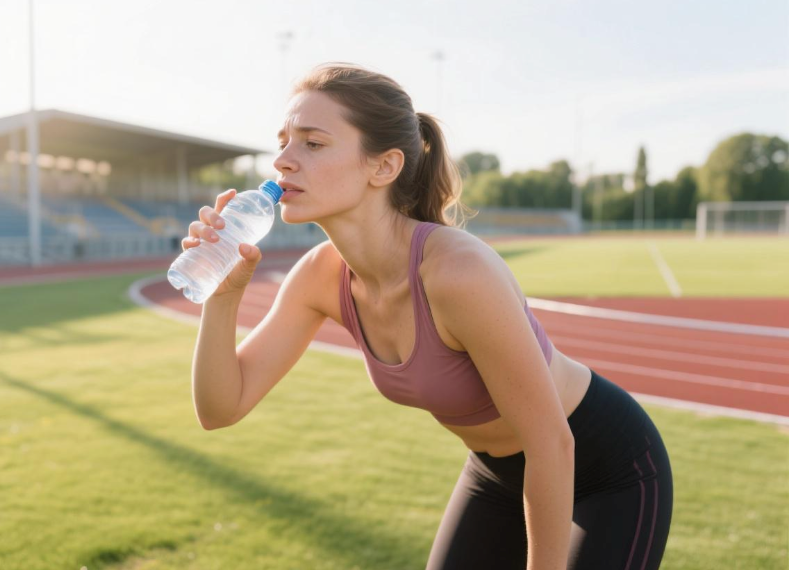In daily life, people often notice their bathroom habits, especially how often they urinate after drinking water. Some find themselves making frequent trips to the restroom, while others can go for hours—sometimes half a day or longer—without feeling the urge. This naturally leads to the question: is it healthier to urinate frequently after drinking or to have a bladder that seems to “hold” longer?
Hydration is essential for life, and urination is the body’s way of maintaining fluid and electrolyte balance. But does the frequency of urination truly reflect one’s health status? Or are there misconceptions at play?
Scientific and Clinical Evidence: What the Data Tell Us
The human body is remarkably adaptive in regulating fluid levels. The kidneys filter blood, removing waste and excess water, which is then excreted as urine. On average, healthy adults produce around 1 to 2 liters of urine per day, but this can vary with fluid intake, climate, diet, activity, and health conditions.
Most people urinate between 4 and 8 times per day. Factors influencing frequency include:
– Fluid intake amount and timing
– Caffeine or alcohol consumption (both increase urination)
– Age and bladder capacity
– Medications (such as diuretics)
– Hormonal changes
– Health conditions (e.g., diabetes, urinary tract infections, prostate issues)
A clinical study published in the journal “Nephrology” reviewed urination habits in over 2,000 adults. It found that those who drank adequate water and urinated regularly had better kidney and urinary tract health compared to those who habitually restricted fluid intake or held urine for long periods. However, excessive urination (more than 10 times daily) without increased fluid intake can signal underlying health issues, such as diabetes insipidus, overactive bladder, or anxiety.
Case Scenario: Two Friends with Different Habits
Consider two fictional friends: Xiaoming and Xiaohong.
Xiaoming believes in staying hydrated and aims for 8 cups (about 2 liters) of water daily. He finds himself visiting the restroom every 2 hours, sometimes feeling it’s inconvenient, but otherwise feels well.
Xiaohong, on the other hand, is so busy at work that she often forgets to drink water and can go half a day without urinating. She believes this shows her body is efficient and doesn’t “need” as much water.
After a routine medical check-up, Xiaoming’s kidney and urinary results are normal. Xiaohong, however, is advised to drink more water, as her urine is consistently concentrated and her blood tests show mild signs of dehydration.
Misconceptions and Harmful Behaviors
There are several common misconceptions:
1. “Holding it in is a sign of good health.” In reality, regularly suppressing the urge to urinate can increase the risk of urinary tract infections (UTIs), bladder dysfunction, and even kidney issues.
2. “Frequent urination means kidney problems.” Not necessarily—if you drink more, you urinate more. Problems arise when frequency changes suddenly, is accompanied by pain, or is unrelated to fluid intake.
3. “Drinking less water avoids bathroom breaks and benefits the body.” Chronic low fluid intake can lead to dehydration, kidney stones, constipation, cognitive impairment, and increased infection risk.
4. “Clear urine is always best.” While very pale urine usually suggests good hydration, completely colorless urine all the time may indicate overhydration, which can also be unhealthy if it leads to electrolyte imbalances.
Correct Health Practices and Practical Recommendations
The key is balance. Here are science-backed recommendations:
– **Hydrate according to your needs:** Most healthy adults need around 1.5 to 2 liters of fluids daily, more if active, in hot weather, or during illness.
– **Listen to your body:** Thirst is a good guide; so is the color of your urine (light yellow is ideal).
– **Don’t hold urine for too long:** Respond to the urge to urinate within a reasonable timeframe (ideally within 1–2 hours).
– **Monitor changes:** Sudden changes in urination patterns, pain, blood in urine, or persistent urge should prompt medical evaluation.
– **Be mindful of special circumstances:** Older adults, children, and those with medical conditions may have different hydration needs.
Expert Insights and Commentary
Dr. Li Wen, a nephrologist at a major teaching hospital (name fictional for illustration), explains: “Regular hydration and timely urination are important for maintaining kidney and bladder health. While frequent urination after drinking water is usually normal, holding urine for long periods can increase infection risk. The body’s signals—thirst and the urge to urinate—are there for a reason.”
Conclusion
So, is it healthier to pee frequently after drinking water or to go half a day without urinating? Science says regular hydration and responding to your body’s cues is best. Those who drink enough and urinate at normal intervals tend to have better urinary and overall health than those who chronically restrict fluids or ignore their bladder’s signals. Both extremes—excessive urination without reason or prolonged holding—can signal or lead to problems. Early awareness and balanced habits are key.
References
1. Wang Y et al. Hydration and Kidney Health: A Review. Nephrology (2022).
2. National Institutes of Health (NIH). Urinary Tract Health. https://www.niddk.nih.gov/health-information/urologic-diseases
3. World Health Organization. Water, sanitation and hygiene.
4. Mayo Clinic. Urination: What’s Normal, What’s Not. https://www.mayoclinic.org/healthy-lifestyle/adult-health/expert-answers/urination/faq-20057816



